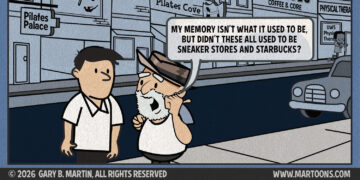
By Tracy Zwick
This Tuesday, the Upper West Side’s own Taffy Brodesser-Akner released “Long Island Compromise,” the follow-up to her bestselling debut novel, “Fleishman Is In Trouble.” She celebrated by discussing the new book with Jake Silverstein, editor-in-chief of The New York Times Magazine, at the New York Public Library’s main branch on Fifth Avenue and 42nd Street.
“Long Island Compromise,” already one of the buzziest books of the summer, introduces readers to the Fletchers, an “extraordinarily, absurdly, kidnappably rich” Jewish-American family living on Long Island in the 1980s.
It’s no spoiler to say a kidnapping takes place. Brodesser-Akner discloses it in the first pages of “Compromise.” Carl, the Fletcher family patriarch, is nabbed in his driveway, then returned five days later after his wife, Ruth, delivers one of the largest ransoms ever. But this isn’t a thriller or a mystery. It’s a Yiddish-laced family saga that’s structurally influenced by Jonathan Franzen, but insofar as it details the Jewish-American experience is in the tradition of Philip Roth. It spools out the comic-tragic lives of the three Fletcher children in sequential sections, detailing how they process, or fail to process, their father’s kidnapping.
We also learn about the principals themselves, Carl and Ruth, and how things changed for them forever when the bottom dropped out of their lives that sunny Long Island day when Carl got grabbed.
(You can read my full review here.)
“I wanted to write something about money,” Brodesser-Akner told Silverstein Tuesday night, and she used the real-life story of Jack Teich’s 1974 kidnapping, which she wrote about in last weekend’s NYT Magazine, as the scaffolding. Teich was a friend of Brodesser-Akner’s dad when she was a kid. She recalled thinking: “Can you imagine being so rich that you got kidnapped for it?!”
“…structurally influenced by Jonathan Franzen…it details the Jewish-American experience in the tradition of Philip Roth.”
But, as Silverstein pointed out, “Compromise” isn’t just about money. It’s about safety and security, and “the ways wealth can deform a family over generations…insulate them, but also make them vulnerable.” Brodesser-Akner added that “there’s this question underneath all of it, which is: Is it good or bad? Should you want it or not?”
In probing those questions, Brodesser-Akner hits on other big themes, including inherited trauma, the inescapability of identity, commodity culture, and environmental politics, along with a timely reminder of the depth and toll of antisemitism in America.
It’s a book “about how people respond to trauma,” Brodesser-Akner said. She discussed her decision to tell the story of Ruth, the cold mother of those three cuckoo kids, last. “It’s the same as writing a profile,” she explained. “The unfolding of events and the deeper understanding of a person will always lead to your empathy and love for them. I wonder if you ‘d feel the same way about Ruth if she came at the beginning.”
Silverstein talked about the “Jewishness” in which “Compromise” is steeped, and how the Holocaust “looms over these characters.”
“But remember,” he reminded the audience, “it’s very entertaining!”
Nobody at the NYPL Tuesday night seemed to need convincing.
 Subscribe to West Side Rag’s FREE email newsletter here, and help sustain the Rag by clicking on the purple support button below.
Subscribe to West Side Rag’s FREE email newsletter here, and help sustain the Rag by clicking on the purple support button below.









The NYT article was much more interesting than I’d expected it to be.